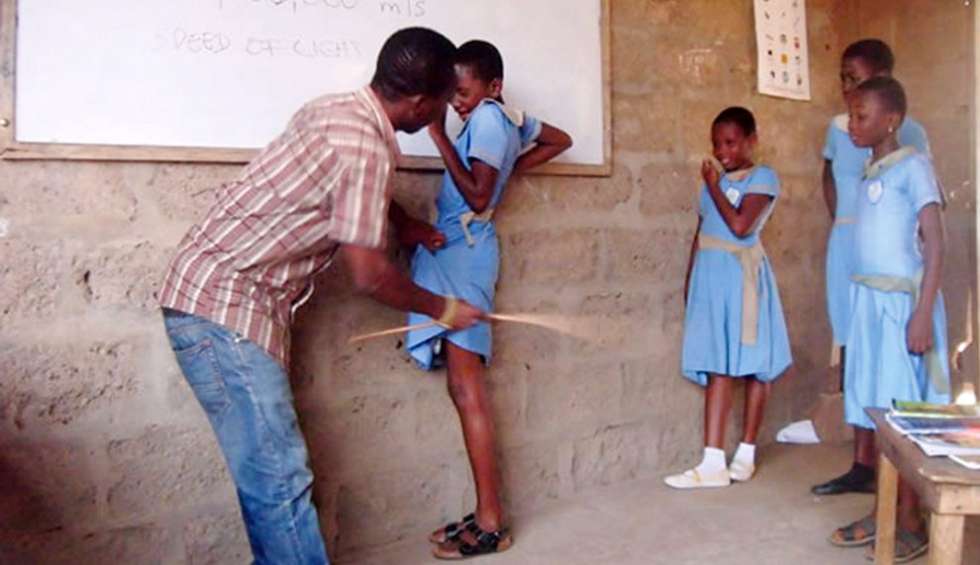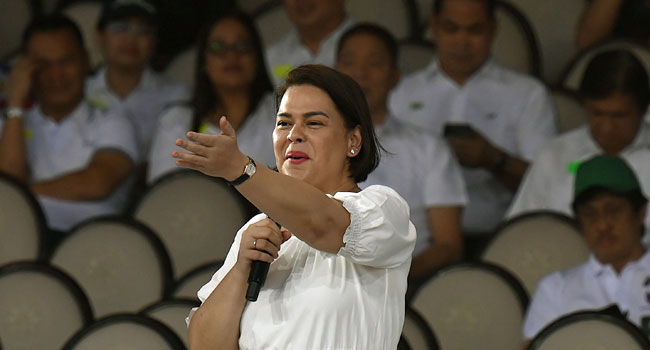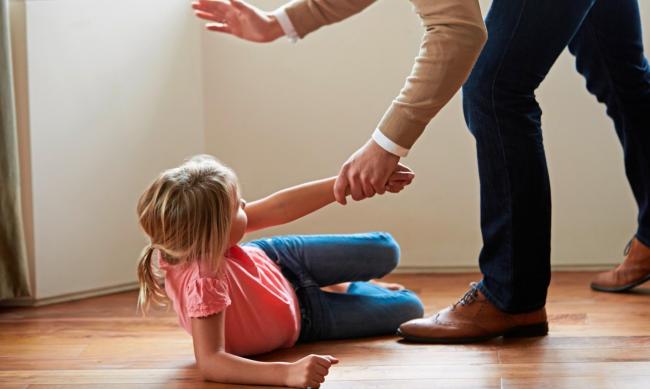Feature
Corporal Punishment: Do children emerge into better adults without physical punishment?

Corporal Punishment: Do children emerge into better adults without physical punishment?
Have you ever thought that how you discipline your child may be a sign of how much you really care for them? This might be a difficult issue to pose, but once you understand why the biblical adage says you should “spare the rod and despise the child”, you will see why it is one that sorely needs attention. We may also not be unaware of the saying that children’s personal development will suffer if they are not physically disciplined when they misbehave. Even though there is a lot of concern about the harmful effects of physical punishment and how it may develop into abuse, it is still arguably one of the most effective ways of taming undesirable conduct.
From an African cultural perspective, parenting is seen as taking many different forms that might help the child grow up to be a responsible adult. There are ways that an African parent can raise a child such that the child would internalize the cultural values of the society and grow up to be a responsible adult. The African culture rightly teaches us that when kids are aware that the punishment they receive for misbehaving is proportional to their acts, they are better able to control their conduct, exercise self-control, and accept responsibility for their deeds. Also, according to some experts, physical punishment keeps kids from continuing their poor behaviour.
However, corporal or physical punishment has been widely condemned by individuals and laws of different countries. According to critics, corporal punishment is strongly opposed because of how frequently it is used and how severely it is applied. They often buttress their position with the provision of the Child’s Rights Act. Yes, all human rights accords indeed acknowledge that children have basic human rights, but the guarantee and implementation of those rights are dependent on regional understandings of what those rights entail and what constitutes abuse. For instance, corporal punishment of children in schools and homes, and as punishments for those who break the law is rarely seen as a human rights issue in Nigeria but is instead more often seen as the enforcement of cultural and moral values, essential for maintaining law and order and the moral upbringing of children in society.
No one is disputing the fact that children need to be protected, but most importantly, they also need to be disciplined. Therefore, those who oppose physical punishment are wrong to assert that it should never be used. Opponents of physical punishment typically come up with a flurry of arguments to back up their position. Some of the justifications often presented by people who oppose corporal punishment are that it promotes abuse, violence, and aggressive behaviour in children. The ultimate question, however, is: has avoiding corporal punishment reduced the violence in this world? And of course, without any preconceived opinion or feeling, children who were trained under the traditional system (corporal punishment) have on several occasions proven to be more disciplined, more productive in a workspace and grow up to become better individuals in society than those trained luxuriously.
However, no one is saying you should beat your child until you deform him or her. After all, raising your child/children is solely your responsibility; others may help but the work is entirely yours. Generally, children should understand that they are accountable for what they do. Prepare your child for the society they will be living in, for it is the absence of this that has created entitled adults who think the world owes them something. Children should always be allowed to be children!
Corporal Punishment: Do children emerge into better adults without physical punishment?
Feature
NITDA’s Digital Revolution: Catalysing Nigeria’s Renewed Hope Agenda Through Technology

NITDA’s Digital Revolution: Catalysing Nigeria’s Renewed Hope Agenda Through Technology
“You can’t delegate digital transformation for your company… You and your executives have to own it! Executives need to engage, embrace and adopt new ways of working with the latest and emerging technologies.” – Barry Ross
By Matthew Eloyi
As Nigeria forges ahead under the leadership of President Bola Ahmed Tinubu, the promise of the Renewed Hope Agenda has found a remarkable champion in the National Information Technology Development Agency (NITDA). Tasked with the pivotal role of spearheading the nation’s digital transformation, NITDA’s performance in the last two years has exceeded expectations, setting a benchmark for innovation, digital inclusion, and socio-economic empowerment through technology.
From integrating digital literacy in schools to deploying state-of-the-art infrastructure and shaping policies that bolster Nigeria’s tech ecosystem, NITDA has played a central role in actualising the president’s vision of a prosperous, tech-driven Nigeria.
NITDA’s aggressive push to embed digital literacy at all levels of society is a bold declaration that the future belongs to those who can navigate the digital world. The agency collaborated with the Federal Ministry of Education to integrate digital literacy into the curriculum of primary and junior secondary schools across the country. This nationwide effort is expected to cultivate a generation of digitally fluent students, positioning them for the global digital economy.
Under its Digital Literacy for All initiative, NITDA launched massive training programmes across the six geopolitical zones. 166,199 beneficiaries were trained through the Digital Economy Employability Program (DEEP) in 2023, while 50,000 Nigerians acquired foundational digital skills through the DL4ALL initiative. These efforts are geared toward achieving 70% digital literacy by 2027 and 95% by 2030—a target fully aligned with the Renewed Hope Agenda’s ambition for widespread human capital development.
NITDA’s commitment to inclusivity is evident in its female-focused and specialised training programmes. Through the Female Founders Training (FFT) initiative, 30 women-led startups from all six geopolitical zones received entrepreneurial and digital skill training, contributing to bridging the gender gap in the tech ecosystem. Similarly, 402 young girls were empowered through the Gina Mata, Gina Al-Umma programme, which equipped them with skills in digital content creation.
On the occasion of the International Girls in ICT Day in 2024, the agency trained 100 secondary school girls, a clear testament to its commitment to women and girls’ inclusion in digital development. Under the Renewed Hope Initiative, 288 women completed digital skill training tailored to female entrepreneurs and professionals.
Additionally, NITDA targeted other crucial segments of the society. Artisans, farmers, teachers, and public servants were all included. Notably, 420 artisans across the country were trained in digital content creation and entrepreneurship, 200 teachers in four states received upskilling, and 813 public servants across 35 Ministries, Departments, and Agencies (MDAs) were trained on e-governance, paving the way for more responsive and efficient public service delivery.
Amid growing global cyber threats, NITDA took a proactive approach in enhancing Nigeria’s cybersecurity posture. 35,917 Nigerians completed CISCO-certified cybersecurity programmes in areas such as ethical hacking, endpoint security, and network defence.
October 2024 marked a significant milestone as NITDA organised a Cybersecurity Awareness Month filled with workshops, stakeholder collaborations, and media campaigns, all aimed at fostering safe online practices. The agency also supported innovation in the cybersecurity space by organising regional challenges across ECOWAS member states, with 5,341 participants and five innovative cybersecurity solutions presented.
In 2023 alone, NITDA thwarted 62 hacking attempts and 97 phishing incidents targeting federal MDA websites, showcasing its robust defensive capabilities. A total of 162 cyber threat detections were recorded, and 37 public advisories were issued, reinforcing public trust in the agency’s vigilance.
NITDA as the clearing House of IT Projects in Nigeria is mandated to clear all IT Projects in line with the policy objectives of the Federal Government to maximize transparency and accountability in carrying out IT Projects by Public Institutions. In 2023, a total of 181 IT Projects were cleared and ₦259,731,102,012.45 saved. The agency also cleared a total of 228 IT projects in 2024 and saved ₦5,037,482,512.72.
NITDA recognises that digital transformation cannot occur without robust infrastructure. In the last two years, it completed the deployment of 80 e-learning solutions and commissioned eight ICT community centres across states including Jigawa, Kano, Ogun, Oyo, Niger, Benue, Kwara, and Lagos. These centres serve as technology hubs, offering training and resources for underserved communities.
In 2023, a total of 28 Digital Economy Centres were operational across several states, including Adamawa, Akwa Ibom, Bauchi, Benue, Borno, Cross River, Delta, Ebonyi, Edo, Ekiti, Enugu, Gombe, Imo, Jigawa, Kaduna, Kano, Katsina, Kebbi, Kogi, Kwara, Lagos, Niger, Ogun, Osun, Oyo, Plateau, Sokoto, and the Federal Capital Territory (FCT). Additionally, nine Community IT Training Centres were active in Bauchi, Kaduna, Guni, Jigawa, Niger, Benue, Kano, Gombe, and Oyo. Expansion efforts for 2024 included the establishment of 22 new Digital Economy Centres in Abia, the FCT, Adamawa, Anambra, Bauchi, Borno, Ebonyi, Ekiti, Enugu, Gombe, Imo, Jigawa, Kaduna, Kano, Katsina, Kebbi, Lagos, Nasarawa, Ogun, Ondo, Osun, and the FCT.
The agency also completed a well-equipped CBT centre in Kogi State and ICT equipping projects in Gombe and the National Institute for Security Studies (NISS). Under the Outsource for Nigeria Initiative (OTNI), the Gombe project exemplifies how digital hubs can boost employment and skill acquisition in regions that traditionally lag behind in tech infrastructure.
NITDA has emerged as a thought leader in the formulation of policies that govern Nigeria’s digital ecosystem. The agency facilitated the development of an Artificial Intelligence (AI) strategy to position Nigeria in the global AI ecosystem, focusing on ethical adoption and national competitiveness.
Its IPv6 Adoption Summit was a forward-looking event aimed at ensuring Nigeria’s internet infrastructure aligns with global standards, catering to future connectivity demands.
Major tech firms: Meta, Google, TikTok, and X submitted compliance reports to NITDA, reinforcing the agency’s regulatory authority. NITDA also revised and audited the National Public Key Infrastructure (PKI), completed recertification of ISO27001:2013, and increased awareness on the Trustmark process for e-commerce providers, further establishing trust in Nigeria’s digital services.
Under the Nigeria Adopted Village for Smart Agriculture (NAVSA) initiative, 200 smallholder farmers have been onboarded and trained in precision agriculture and climate-smart farming practices. To date, more than 450 farmers have directly benefited from the program, with over 1,500 indirect jobs created as a result.
Through the Technology Innovation and Entrepreneurship Support Scheme (TIES), NITDA provided scholarships and funding opportunities, while also supporting startups at major global platforms such as GITEX North Star 2023. These efforts not only boosted the visibility of Nigerian innovations but also attracted foreign investment. Additionally, 10,943 beneficiaries were trained under the NITDA-Coursera partnership between 2023 and 2025.
In a related effort to boost global trade and startup growth, NITDA co-manages the Tech Export & Digital Trade Desk alongside Federal Ministry of Communications Innovations and Digital Economy (FMCIDE) and Federal Ministry of Industry Trade and Investment (FMITI), with a focus on expanding Nigerian startups through the African Continental Free Trade Area (AfCFTA) and global markets. Since its inception, the desk has engaged over 70 startups through two dedicated programs and facilitated more than 10 key connections between startups, partners, and regulators. The initiative also led to the development and dissemination of the AfCFTA Startup Guide and promoted a public-private partnership with NIPOST to enhance logistics for tech-driven trade.
NITDA’s active involvement in prominent global technology events—including GITEX, Digital Nigeria, and the International Conference on Theory and Practice of Electronic Governance (ICEGOV)—has significantly enhanced Nigeria’s international reputation in the tech space. Demonstrating its dedication to knowledge exchange and intellectual growth, the agency also sponsored five Nigerian researchers to participate in the 17th edition of ICEGOV, held in 2024 in Pretoria, South Africa.
The trajectory NITDA has charted under the Renewed Hope Agenda is one of audacity, vision, and inclusivity. It is a story of how a nation, through the resolve of a strategic agency, is reclaiming its future by digitising its present. Every classroom connected, every artisan trained, every woman empowered, and every cybersecurity threat neutralised is a testament to the agency’s transformative impact.
As the digital revolution gathers momentum, NITDA remains a cornerstone of Nigeria’s journey towards a resilient, knowledge-based economy. It is no longer a question of if Nigeria will lead Africa’s digital future—but how soon.
Feature
Bridging Innovation and Opportunity: NITDA’s Bold Digital Step in Southeast

Bridging Innovation and Opportunity: NITDA’s Bold Digital Step in Southeast
By Matthew Eloyi
In a decisive stride toward digital inclusivity and national development, the National Information Technology Development Agency (NITDA) has once again demonstrated its visionary leadership in Nigeria’s digital transformation journey with the commissioning of its South East regional office in Enugu. This development is not just another bureaucratic expansion—it is a landmark initiative poised to catalyze innovation, bridge regional opportunity gaps, and empower the Southeast with the tools needed for success in the 21st-century digital economy.
At the heart of this bold step is a clear mandate: to bring the digital economy closer to Nigerians across all geopolitical zones. The newly inaugurated office, commissioned by Governor Peter Mbah of Enugu State and graced by the Minister of Communications, Innovation and Digital Economy, Dr. Bosun Tijani, is designed to function as a strategic hub for digital skills development, startup support, regulatory advisory, and multilateral partnerships.
What sets this move apart is the deliberate alignment with President Bola Ahmed Tinubu’s Renewed Hope Agenda. It is no coincidence that Dr. Tijani described the event as “far more than the opening of a building,” but rather “the establishment of a permanent bridge between national policy and local potential.” Indeed, the infrastructure may be physical, but the impact is deeply symbolic—an inclusive and decentralized approach to building Nigeria’s digital future.
With Nigeria’s youth population projected to continue growing rapidly, the question of equitable access to digital opportunities has never been more urgent. This is where NITDA’s role becomes not only relevant but essential. By placing a regional hub in Enugu, the agency is decentralizing innovation, expanding its national footprint, and tapping into the intellectual capital and entrepreneurial energy of the Southeast.
Governor Mbah’s remarks at the commissioning further underscore the strategic significance of this investment. He rightly emphasized that economic diversification is not a luxury but a necessity, and the technology sector holds one of the brightest prospects for sustainable growth. He went further to applaud NITDA’s foresight, stating that the regional office represents a transformative opportunity for young people in Enugu and beyond to acquire lifelong digital skills that align with the global workforce.
For many in the region, this initiative provides the infrastructure needed to actualize their digital dreams. Whether it’s young software developers looking for mentorship and resources, budding tech entrepreneurs in need of incubation, or universities seeking research collaboration, the Enugu regional office is positioned as a critical nexus of support.
Dr. Tijani’s praise of Enugu as one of Nigeria’s most promising innovation frontiers is both an endorsement and a challenge. He noted that “something extraordinary is unfolding in Enugu,” citing the palpable momentum the state has achieved in less than two years under Governor Mbah’s leadership. NITDA’s presence will undoubtedly amplify this momentum, creating a virtuous cycle of talent development, innovation, and economic upliftment.
This initiative also sets a precedent for how federal institutions can effectively partner with state governments, academia, and the private sector to deliver development outcomes. It reflects a maturing understanding of digital policy—one that recognizes that progress must be rooted in collaboration, inclusiveness, and regional empowerment.
While Nigeria continues to face multifaceted challenges, the commissioning of the NITDA regional office in Enugu is a refreshing reminder that with deliberate policy and strategic investment, progress is achievable. It is a testament to what is possible when institutions move beyond rhetoric and commit to creating real, measurable impact at the grassroots level.
In a world increasingly defined by data, innovation, and connectivity, NITDA is playing a vital role in ensuring Nigeria does not remain on the periphery of the digital revolution. The agency’s Enugu office is more than bricks and mortar—it is an emblem of hope, a channel for empowerment, and a bold affirmation that the future is not just coming to Nigeria—it is being built, thoughtfully and inclusively, by Nigerians.
Feature
Google and Nigeria: Collaborating for a Digital Tomorrow

In an era where digital transformation is defining economic growth and global competitiveness, Nigeria is positioning itself at the forefront of Africa’s technology revolution. With an ambitious partnership with Google, the country is set to harness the power of artificial intelligence (AI), cloud computing, and digital infrastructure to drive innovation and economic diversification.
According to a report by Punch Newspaper, President Bola Ahmed Tinubu recently announced Nigeria’s commitment to leading AI innovations in Africa. His announcement came after a high-level engagement with SundarPichai, the Chief Executive Officer of Google and Alphabet, during a meeting in France. This partnership, as highlighted by the President, is designed to advance Nigeria’s role in AI and digital technology, reinforcing his administration’s Renewed Hope Agenda, which prioritisesindustrialisation, digitisation, and innovation.
Beyond governmental rhetoric, this collaboration aims to materialise into practical initiatives that will empower businesses, create jobs, and enhance Nigeria’s digital economy. The Federal Ministry of Communications, Innovation, and Digital Economy is expected to oversee the implementation of these initiatives, with the National Information Technology Development Agency (NITDA) playing a lead role in execution.
According to the Director-General of NITDA,KashifuInuwaAbdullahi CCIE, the partnership between Nigeria and Google is a critical step towardtowards making Nigeria a digitally empowered nation , fostering inclusive economic growth through technological innovation. . Speaking in a televised interview, as reported by the News Agency of Nigeria, he emphasised that the collaboration will focus on infrastructure development, upskilling Nigerian citizens, fostering AI innovation, adopting cloud technologies, and creating an investment-friendly environment.
One of the major areas of focus is the establishment of data centres to support Nigeria’s growing digital infrastructure, putting the country on the path of digital sovereignty The NITDA boss noted that no data centre globally relies solely on grid electricity. Thus, the integration of renewable energy sources and carbon credit initiatives will be key to the sustainability of this project.
Furthermore, the partnership aims to enhance digital literacy by embedding digital skills training across Nigeria’s educational system, from primary school to tertiary institutions. This initiative aligns with the broader goal of preparing the Nigerian workforce for emerging opportunities in the global digital economy.
While the collaboration with Google is extensive, Nigeria is also making strides in AI research through other strategic initiatives. President Tinubu highlighted Awarri Technologies as a key player in the AI space, with ongoing efforts to build critical AI software infrastructure tailored to Nigeria’s unique market needs.
The strategic partnership between Nigeria and Google represents a significant leap toward positioning the country as Africa’s digital powerhouse. By leveraging AI, cloud computing, and scalable digital infrastructure, Nigeria is on course to becoming a major player in the global technology landscape.
With the Federal Ministry of Communications, Innovation, and Digital Economy providing oversight and NITDA spearheading implementation, the collaboration promises to create new economic opportunities, enhance digital access, and equip Nigerians with the skills needed to thrive in a rapidly evolving digital world. As Nigeria embraces this digital revolution, the partnership with Google may well be the catalyst that propels the country into a future where technology drives inclusive growth, innovation, and sustainable development.
-

 Headlines3 years ago
Headlines3 years agoFacebook, Instagram Temporarily Allow Posts on Ukraine War Calling for Violence Against Invading Russians or Putin’s Death
-

 Headlines3 years ago
Headlines3 years agoNigeria, Other West African Countries Facing Worst Food Crisis in 10 Years, Aid Groups Say
-

 Foreign3 years ago
Foreign3 years agoNew York Consulate installs machines for 10-year passport
-

 News10 months ago
News10 months agoZero Trust Architecture in a Remote World: Securing the New Normal
-

 Entertainment3 years ago
Entertainment3 years agoPhyna emerges winner of Big Brother Naija Season 7
-

 Headlines1 year ago
Headlines1 year agoNigeria Customs modernisation project to check extortion of traders
-

 Economy1 year ago
Economy1 year agoWe generated N30.2 bn revenue in three months – Kano NCS Comptroller
-

 Headlines1 year ago
Headlines1 year agoPhilippines’ Vice President Sara Duterte resigns from Cabinet














